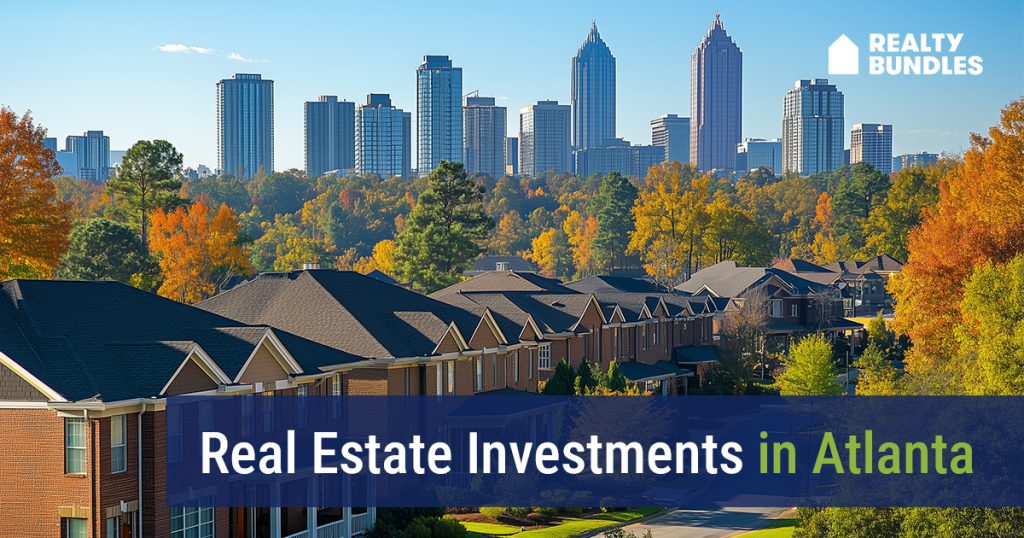Real Estate Investments in Atlanta

Interested in investing in real estate in Atlanta? Read on to explore key information about the city’s real estate market, available property types and the factors influencing local trends.
- Overview of Atlanta’s Real Estate Market
- Atlanta Property Types
- Factors Influencing Atlanta’s Real Estate Market
- Notable Atlanta Neighbourhoods and Communities
- Opportunities and Challenges in Atlanta’s Real Estate Market
- Conclusion
Overview of Atlanta’s Real Estate Market
Atlanta is a major urban centre with a diverse economy, numerous employment hubs and a growing population. The city’s real estate market is attracting attention from both private buyers and investors as it combines both developed urban areas and areas with growth potential.
The city consists of various neighbourhoods each with distinct characteristics. Some areas are known for extensive commercial development, while others are primarily residential, featuring new constructions and renovated historic buildings.
Atlanta Property Types
Atlanta’s real estate market offers a wide range of properties suitable for different types of buyers and investors. The main property types available include:
- Residential apartments in new buildings: Modern constructions with high-quality amenities often located in central areas.
- Single-family homes: Common in suburban areas, offering larger living spaces.
- Commercial properties: Buildings designated for business use, including retail spaces, offices and industrial centres.
- Short-term rental properties: Found in tourist-friendly areas.
Factors Influencing Atlanta’s Real Estate Market
Several key factors shape the real estate market in Atlanta:
- Urban development: Ongoing infrastructure projects, public transportation investments and new developments contribute to changes in the market.
- Economic growth: The presence of large companies influences demand for both residential and commercial properties.
- Quality of life: Atlanta features diverse educational institutions, green spaces and well-established communities.
- Market conditions: Land availability, property prices and broader economic trends impact investment considerations in different areas.
Notable Atlanta Neighbourhoods and Communities
Atlanta’s neighbourhoods vary in character and lifestyle offerings. Well-known areas include:
- Midtown: A central district with high-rise residential buildings, cultural venues and an active nightlife.
- Buckhead: A district with large single-family homes and established shopping centres.
- Old Fourth Ward: A historic neighbourhood undergoing urban renewal that attracts a mixture of residents, including artists and young professionals.
- West End: Recognised for its traditional architecture and close-knit communities.
Opportunities and Challenges in Atlanta’s Real Estate Market
Opportunities:
- Economic development continues to contribute to population growth.
- A variety of housing options are available to accommodate different needs.
- An expanding public transportation system is enhancing the city’s accessibility.
Challenges:
- Some areas are still in the early stages of their development and may lack complete infrastructure.
- The market can be highly competitive in certain districts.
- Conducting thorough research is necessary to understand local market trends.
Conclusion
Atlanta’s real estate market includes a wide selection of properties across different areas. The combination of economic growth, urban development and housing availability makes the city an area of interest for many. Understanding the various neighbourhoods and key market factors can help would-be investors make informed investment decisions.
